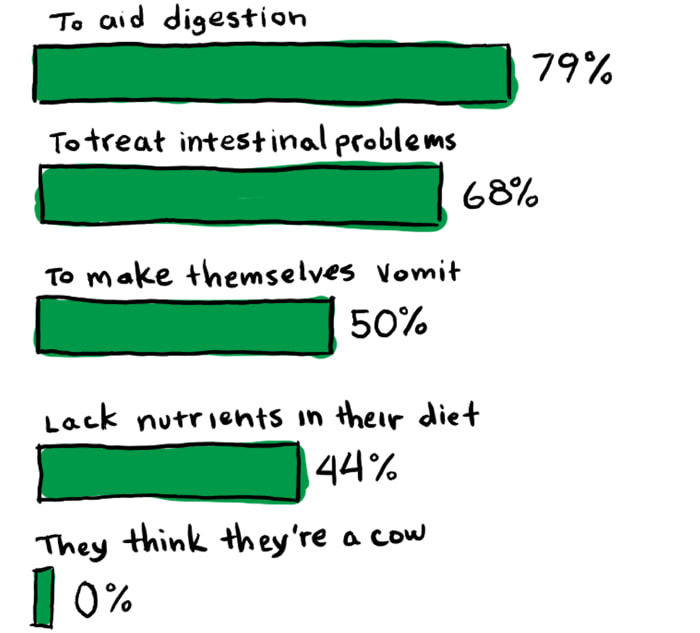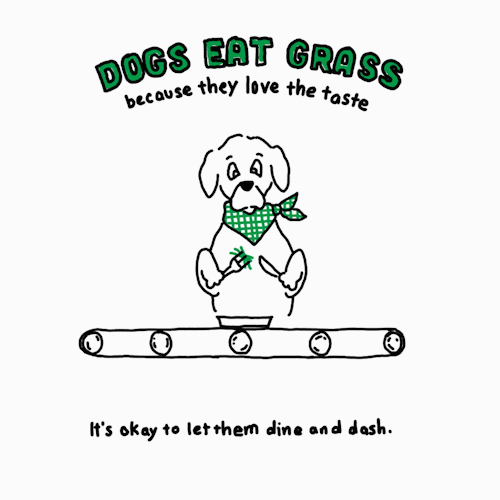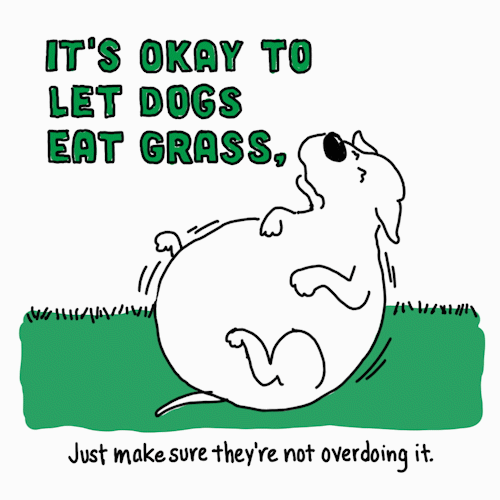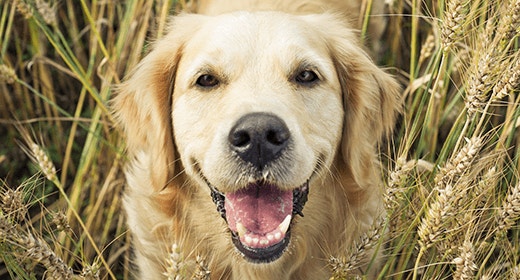

In a recent IAMS poll of dog owners,* 69% said their dog eats grass. That’s quite a lot. Owners also have quite a lot of theories on why their dog is noshing on the lawn.

It’s not just modern-day canines that eat grass. It’s likely something that has been going on for thousands of dog years. According to
Opens a new windowDr. Tammie King, Applied Behavior Technical Leader at Waltham Petcare Science Institute, “It is actually normal canine behavior. It has to do with innate behavior from canine ancestors. Potentially a remnant behavior.”
Dr. King also shared this with us: “A lot of people think dogs eat grass when they’re feeling ill, but studies have shown that’s not necessarily true.”
But then why do dogs eat grass? To get to the (grass)root of this issue, we asked
Opens a new windowDr. Jo Gale, BVetMed CertLAS MRCVS Senior Manager of Global Science Advocacy at Waltham Petcare Science Institute.
'There's no one reason. They just like the taste, texture and feel of the grass.'
So it’s perfectly fine if your pooch decides to have an occasional grass snack. Who doesn’t crave a salad every now and then?
However …

If your dog is getting adequate nutrition, there’s no need to worry. But the experts we talked with asked dog owners to please keep in mind the following:
· Grass that’s been treated with weed killer or pesticides should be off the menu.
· If your dog is eating grass excessively or routinely vomiting from eating grass, consult your vet.

Looking for the perfect dog food to pair with their side of sod slaw? IAMS has the answer for that, too.
*Surveyed U.S. dog owners, age 18+
Sample Size: n=201
Fielded May 8 to May 10, 2020


Wheat is a grain used as a high-quality carbohydrate source in dry dog foods and biscuits. It provides energy for daily activity, as well as processing characteristics for the food. IAMS™ research has shown that including wheat in a complete and balanced diet results in a moderate glycemic response in dogs, which is lower, in general, than the response observed when a rice-based diet was fed. 1,2
A common misconception is that feeding wheat causes food allergies. The facts are:
Gluten (a protein found in wheat) is responsible for wheat-sensitive enteropathy, occasionally found in Irish Setters from the United Kingdom. Gluten enteropathy of Irish Setters is a malabsorption syndrome, which responds to the removal of wheat (gluten) from the diet. This condition is very rare, and the reason some dogs develop it is not yet clear.
1 Sunvold GD. “The role of novel nutrients in managing obesity.” In: Recent Advances in Canine and Feline Nutrition, Vol II: 1998 IAMS Nutrition Symposium Proceedings. Carey DP, Norton SA, Bolser SM, eds. Wilmington, OH: Orange Frazer Press, 1998; 123–133.
2 Bouchard GF. “Effect of dietary carbohydrate source on posprandial plasma glucose and insulin concentration in cats.” In: Recent Advances in Canine and Feline Nutrition, Vol III: 2000 IAMS Nutrition Symposium Proceedings. Reinhart GA, Carey DP eds. Wilmington, OH: Orange Frazer Press, 2000; 91–101.
3 Jeffers JG. “Responses of dogs with food allergies to a single-ingredient dietary provocation.” J Am Vet Med Assoc. 1996, vol 209(3): 608–611.